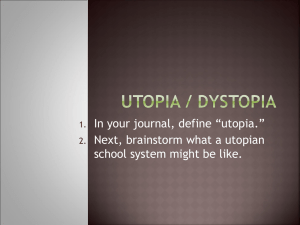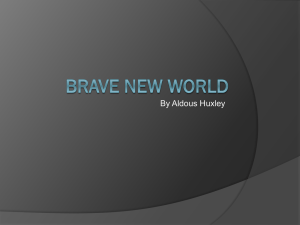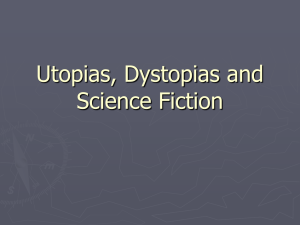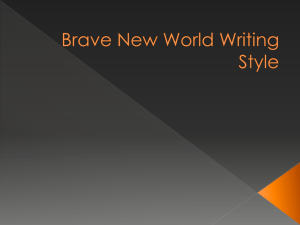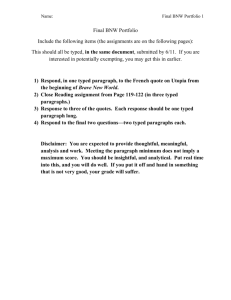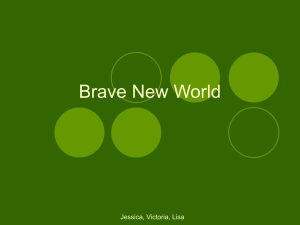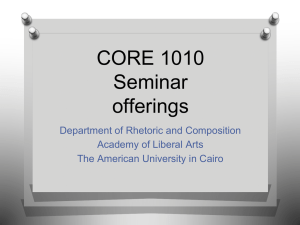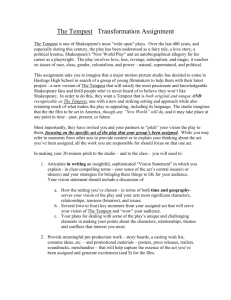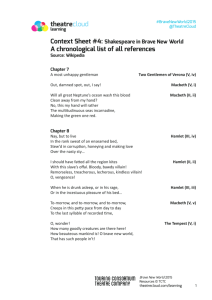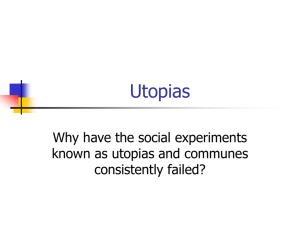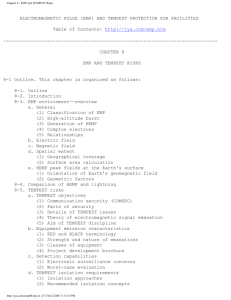Brave New World-Epigraph and Tempest Reference.doc
advertisement
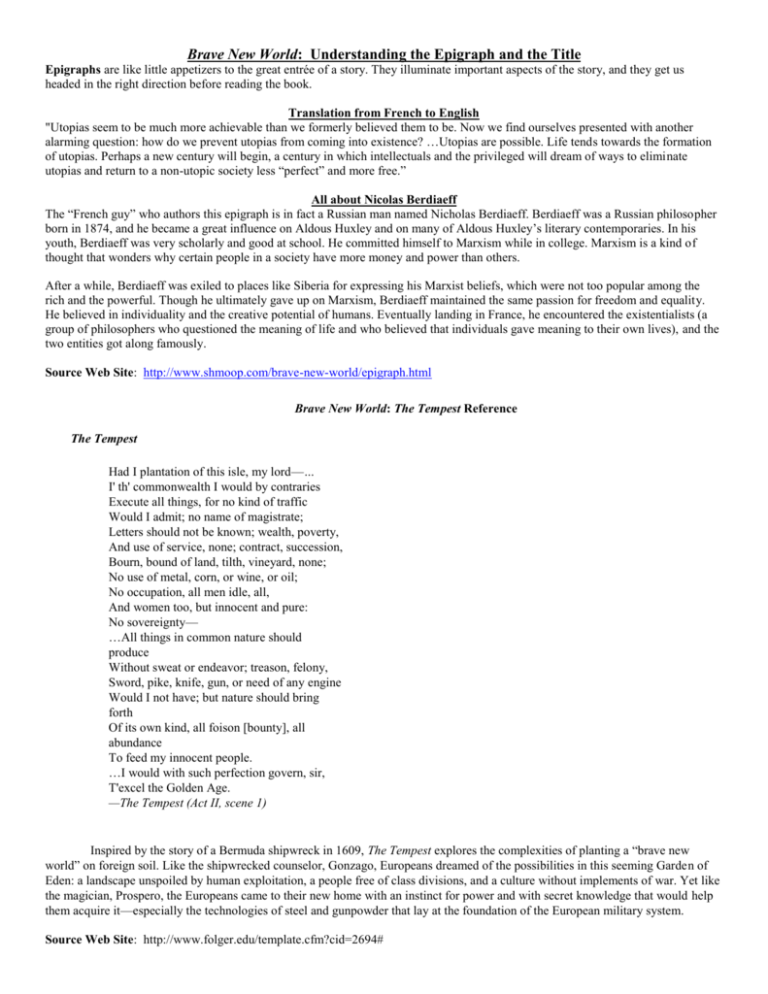
Brave New World: Understanding the Epigraph and the Title Epigraphs are like little appetizers to the great entrée of a story. They illuminate important aspects of the story, and they get us headed in the right direction before reading the book. Translation from French to English "Utopias seem to be much more achievable than we formerly believed them to be. Now we find ourselves presented with another alarming question: how do we prevent utopias from coming into existence? …Utopias are possible. Life tends towards the formation of utopias. Perhaps a new century will begin, a century in which intellectuals and the privileged will dream of ways to eliminate utopias and return to a non-utopic society less “perfect” and more free.” All about Nicolas Berdiaeff The “French guy” who authors this epigraph is in fact a Russian man named Nicholas Berdiaeff. Berdiaeff was a Russian philosopher born in 1874, and he became a great influence on Aldous Huxley and on many of Aldous Huxley’s literary contemporaries. In his youth, Berdiaeff was very scholarly and good at school. He committed himself to Marxism while in college. Marxism is a kind of thought that wonders why certain people in a society have more money and power than others. After a while, Berdiaeff was exiled to places like Siberia for expressing his Marxist beliefs, which were not too popular among the rich and the powerful. Though he ultimately gave up on Marxism, Berdiaeff maintained the same passion for freedom and equality. He believed in individuality and the creative potential of humans. Eventually landing in France, he encountered the existentialists (a group of philosophers who questioned the meaning of life and who believed that individuals gave meaning to their own lives), and the two entities got along famously. Source Web Site: http://www.shmoop.com/brave-new-world/epigraph.html Brave New World: The Tempest Reference The Tempest Had I plantation of this isle, my lord—… I' th' commonwealth I would by contraries Execute all things, for no kind of traffic Would I admit; no name of magistrate; Letters should not be known; wealth, poverty, And use of service, none; contract, succession, Bourn, bound of land, tilth, vineyard, none; No use of metal, corn, or wine, or oil; No occupation, all men idle, all, And women too, but innocent and pure: No sovereignty— …All things in common nature should produce Without sweat or endeavor; treason, felony, Sword, pike, knife, gun, or need of any engine Would I not have; but nature should bring forth Of its own kind, all foison [bounty], all abundance To feed my innocent people. …I would with such perfection govern, sir, T'excel the Golden Age. —The Tempest (Act II, scene 1) Inspired by the story of a Bermuda shipwreck in 1609, The Tempest explores the complexities of planting a “brave new world” on foreign soil. Like the shipwrecked counselor, Gonzago, Europeans dreamed of the possibilities in this seeming Garden of Eden: a landscape unspoiled by human exploitation, a people free of class divisions, and a culture without implements of war. Yet like the magician, Prospero, the Europeans came to their new home with an instinct for power and with secret knowledge that would help them acquire it—especially the technologies of steel and gunpowder that lay at the foundation of the European military system. Source Web Site: http://www.folger.edu/template.cfm?cid=2694#
